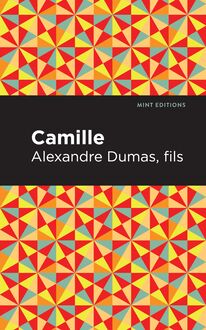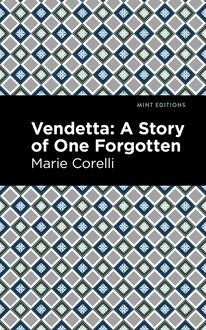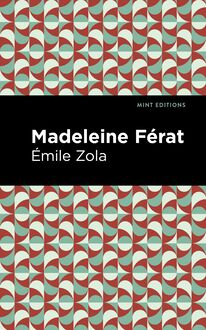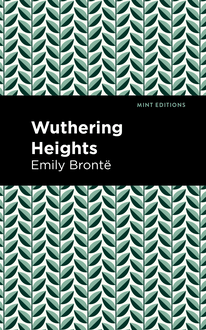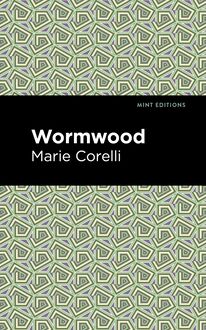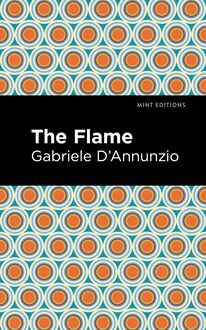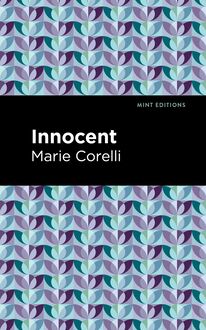-
 Univers
Univers
-
 Ebooks
Ebooks
-
 Livres audio
Livres audio
-
 Presse
Presse
-
 Podcasts
Podcasts
-
 BD
BD
-
 Documents
Documents
-
- Cours
- Révisions
- Ressources pédagogiques
- Sciences de l’éducation
- Manuels scolaires
- Langues
- Travaux de classe
- Annales de BEP
- Etudes supérieures
- Maternelle et primaire
- Fiches de lecture
- Orientation scolaire
- Méthodologie
- Corrigés de devoir
- Annales d’examens et concours
- Annales du bac
- Annales du brevet
- Rapports de stage
La lecture à portée de main
Vous pourrez modifier la taille du texte de cet ouvrage
Découvre YouScribe en t'inscrivant gratuitement
Je m'inscrisDécouvre YouScribe en t'inscrivant gratuitement
Je m'inscrisEn savoir plus
Vous pourrez modifier la taille du texte de cet ouvrage
En savoir plus

Description
Checkmate (1871) is a novel by Joseph Sheridan Le Fanu. Although less well-known than his more popular works of Gothic horror and mystery, including the vampire novella Carmilla (1872) and the novel The House by the Church-Yard (1863), Checkmate remains central to Le Fanu’s legacy as an innovator whose literary works inspired Bram Stoker and Sir Arthur Conan Doyle.
Walter Longcluse is a mysterious gentleman, a drifter and self-made man whose travels throughout France, Austria, and England resulted in his accumulation of an immense personal fortune. With his calm demeanor and general friendliness, he is quickly accepted into the inner circle of the Arden family, a clan of aristocrats whose once luxuriant star has lately dimmed due to unpaid debts and the murder of one of their number. As Longcluse courts the lovely Alice, her brother Richard enjoys the older man’s company, and the two become fast friends. One night, however, a visit to a gambling club brings them face to face with Monsieur Lebas, a brutish figure who seems to recognize Longcluse and, later that evening, is discovered to have been murdered. As the story unfolds, clues planted discreetly throughout the plot lead to Le Fanu’s thrilling conclusion, which contains a well-designed plot twist too sinister to imagine. Checkmate is a tale of wealth and betrayal, a novel that raises more questions than answers for the reader held under its spell.
With a beautifully designed cover and professionally typeset manuscript, this edition of Joseph Sheridan Le Fanu’s Checkmate is a classic of Irish literature reimagined for modern readers.
Sujets
Informations
| Publié par | Mint Editions |
| Date de parution | 23 février 2021 |
| Nombre de lectures | 0 |
| EAN13 | 9781513276663 |
| Langue | English |
| Poids de l'ouvrage | 3 Mo |
Informations légales : prix de location à la page 0,0500€. Cette information est donnée uniquement à titre indicatif conformément à la législation en vigueur.
Extrait
Checkmate
Joseph Sheridan Le Fanu
Checkmate was first published in 1871.
This edition published by Mint Editions 2021.
ISBN 9781513271668 | E-ISBN 9781513276663
Published by Mint Editions ®
minteditionbooks.com
Publishing Director: Jennifer Newens
Design & Production: Rachel Lopez Metzger
Project Manager: Micaela Clark
Typesetting: Westchester Publishing Services
C ONTENTS I. M ORTLAKE H ALL II. M ARTHA T ANSEY III. M R. L ONGCLUSE O PENS H IS H EART IV. M ONSIEUR L EBAS V. A C ATASTROPHE VI. T O B ED VII. F AST F RIENDS VIII. C ONCERNING A B OOT IX. T HE M AN WITHOUT A N AME X. T HE R OYAL O AK XI. T HE T ELEGRAM A RRIVES XII. S IR R EGINALD A RDEN XIII. O N THE R OAD XIV. M R. L ONGCLUSE’S B OOT F INDS A T EMPORARY A SYLUM XV. F ATHER AND S ON XVI. A M IDNIGHT M EETING XVII. M R. L ONGCLUSE AT M ORTLAKE H ALL XVIII. T HE P ARTY IN THE D INING- R OOM XIX. I N M RS. T ANSEY’S R OOM XX. M RS. T ANSEY’S S TORY XXI. A W ALK BY M OONLIGHT XXII. M R. L ONGCLUSE M AKES AN O DD C ONFIDENCE XXIII. T HE M EETING XXIV. M R. L ONGCLUSE F OLLOWS A S HADOW XXV. A T ETE- A - T ETE XXVI. T HE G ARDEN AT M ORTLAKE XXVII. W INGED W ORDS XXVIII. S TORIES A BOUT M R. L ONGCLUSE XXIX. T HE G ARDEN P ARTY XXX. H E S EES H ER XXXI. A BOUT THE G ROUNDS XXXII. U NDER THE L IME- T REES XXXIII. T HE D ERBY XXXIV. A S HARP C OLLOQUY XXXV. D INNER AT M ORTLAKE XXXVI. M R. L ONGCLUSE S EES A L ADY’S N OTE XXXVII. W HAT A LICE C OULD S AY XXXVIII. G ENTLEMEN IN T ROUBLE XXXIX. B ETWEEN F RIENDS XL. A N I NTERVIEW IN THE S TUDY XLI. V AN A PPOINTS H IMSELF TO A D IPLOMATIC P OST XLII. D IPLOMACY XLIII. A L ETTER AND A S UMMONS XLIV. T HE R EASON OF A LICE’S N OTE XLV. C OLLISION XLVI. A N U NKNOWN F RIEND XLVII. B Y THE R IVER XLVIII. S UDDEN N EWS XLIX. V OWS FOR THE F UTURE L. U NCLE D AVID’S S USPICIONS LI. T HE S ILHOUETTE LII. M R. L ONGCLUSE E MPLOYED LIII. T HE N IGHT OF THE F UNERAL LIV. A MONG THE T REES LV. M R. L ONGCLUSE S EES A F RIEND LVI. A H OPE E XPIRES LVII. L EVI’S A POLOGUE LVIII. T HE B ARON C OMES TO T OWN LIX. T WO O LD F RIENDS M EET AND P ART LX . “ S AUL” LXI. A W AKING D REAM LXII. L OVE AND P LAY LXIII. P LANS LXIV. F ROM F LOWER TO F LOWER LXV. B EHIND THE A RRAS LXVI. A B UBBLE B ROKEN LXVII. B OND AND D EED LXVIII. S IR R ICHARD’S R ESOLUTION LXIX. T HE M EETING LXX. M R. L ONGCLUSE P ROPOSES LXXI. N IGHT LXXII. M EASURES LXXIII. A T THE B AR OF THE “ G UY OF W ARWICK” LXXIV. A L ETTER LXXV. B LIGHT AND C HANGE LXXVI. P HŒBE C HIFFINCH LXXVII. M ORE N EWS OF P AUL D AVIES LXXVIII. T HE C ATACOMBS LXXIX. R ESURRECTIONS LXXX. A NOTHER LXXXI. B ROKEN LXXXII. D OPPELGANGER LXXXIII. A S HORT P ARTING LXXXIV. A T M ORTLAKE LXXXV. T HE C RISIS LXXXVI. P URSUIT LXXXVII. C ONCLUSION
I
M ORTLAKE H ALL
T here stands about a mile and a half beyond Islington, unless it has come down within the last two years, a singular and grand old house. It belonged to the family of Arden, once distinguished in the Northumbrian counties. About fifty acres of ground, rich with noble clumps and masses of old timber, surround it; old-world fish-ponds, with swans sailing upon them, tall yew hedges, quincunxes, leaden fauns and goddesses, and other obsolete splendours surround it. It rises, tall, florid, built of Caen stone, with a palatial flight of steps, and something of the grace and dignity of the genius of Inigo Jones, to whom it is ascribed, with the shadows of ancestral trees and the stains of two centuries upon it, and a vague character of gloom and melancholy, not improved by some indications not actually of decay, but of something too like neglect.
It is now evening, and a dusky glow envelopes the scene. The setting sun throws its level beams, through tall drawing-room windows, ruddily upon the Dutch tapestry on the opposite walls, and not unbecomingly lights up the little party assembled there.
Good-natured, fat Lady May Penrose, in her bonnet, sips her tea and chats agreeably. Her carriage waits outside. You will ask who is that extremely beautiful girl who sits opposite, her large soft grey eyes gazing towards the western sky with a look of abstraction, too forgetful for a time of her company, leaning upon the slender hand she has placed under her cheek. How silken and golden-tinted the dark brown hair that grows so near her brows, making her forehead low, and marking with its broad line the beautiful oval of her face! Is there carmine anywhere to match her brilliant lips? And when, recollecting something to tell Lady May, she turns on a sudden, smiling, how soft and pretty the dimples, and how even the little row of pearls she discloses!
This is Alice Arden, whose singularly handsome brother Richard, with some of her tints and outlines translated into masculine beauty, stands leaning on the back of a prie-dieu chair, and chatting gaily.
But who is the thin, tall man—the only sinister figure in the group—with one hand in his breast, the other on a cabinet, as he leans against the wall? Who is that pale, thin-lipped man, “with cadaverous aspect and broken beak,” whose eyes never seem to light up, but maintain their dismal darkness while his pale lips smile? Those eyes are fixed on the pretty face of Alice Arden, as she talks to Lady May, with a strangely intense gaze. His eyebrows rise a little, like those of Mephistopheles, towards his temples, with an expression that is inflexibly sarcastic, and sometimes menacing. His jaw is slightly underhung, a formation which heightens the satirical effect of his smile, and, by contrast, marks the depression of his nose.
There was at this time in London a Mr. Longcluse, an agreeable man, a convenient man, who had got a sort of footing in many houses, nobody exactly knew how. He had a knack of obliging people when they really wanted a trifling kindness, and another of holding fast his advantage, and, without seeming to push, or ever appearing to flatter, of maintaining the acquaintance he had once founded. He looked about eight-and-thirty: he was really older. He was gentlemanlike, clever, and rich; but not a soul of all the men who knew him had ever heard of him at school or college. About his birth, parentage, and education, about his “life and adventures,” he was dark.
How were his smart acquaintance made? Oddly, as we shall learn when we know him a little better. It was a great pity that there were some odd things said about this very agreeable, obliging, and gentlemanlike person. It was a pity that more was not known about him. The man had enemies, no doubt, and from the sort of reserve that enveloped him their opportunity arose. But were there not about town hundreds of men, well enough accepted, about whose early days no one cared a pin, and everything was just as dark?
Now Mr. Longcluse, with his pallid face, his flat nose, his sarcastic eyebrows, and thin-lipped smile, was overlooking this little company, his shoulder leaning against the frame that separated two pieces of the pretty Dutch tapestry which covered the walls.
“By-the-bye, Mr. Longcluse—you can tell me, for you always know everything,” said Lady May—“is there still any hope of that poor child’s recovering—I mean the one in that dreadful murder in Thames Street, where the six poor little children were stabbed?”
Mr. Longcluse smiled.
“I’m so glad, Lady May, I can answer you upon good authority! I stopped to-day to ask Sir Edwin Dudley that very question through his carriage window, and he said that he had just been to the hospital to see the poor little thing, and that it was likely to do well.”
“I’m so glad! And what do they say can have been the motive of the murder?”
“Jealousy, they say; or else the man is mad.”
“I should not wonder. I’m sure I hope he is. But they should take care to put him under lock and key.”
“So they will, rely on it; that’s a matter of course.”
“I don’t know how it is,” continued Lady May, who was garrulous, “that murders interest people so much, who ought to be simply shocked at them.”
“We have a murder in our family, you know,” said Richard Arden.
“That was poor Henry Arden—I know,” she answered, lowering her voice and dropping her eyes, with a side glance at Alice, for she did not know how she might like to hear it talked of.
“Oh, that happened when Alice was only five months old, I think,” said Richard; and slipping into the chair beside Lady May, he laid his hand upon hers with a smile, and whispered, leaning towards her—
“You are always so thoughtful; it is so nice of you!”
And this short speech ended, his eyes remained fixed for some seconds, with a glow of tender admiration, on those of fat Lady May, who simpered with effusion, and did not draw her hand away until she thought she saw Mr. Longcluse glance their way.
It was quite true, all he said of Lady May. It would not be easy to find a simpler or more good-natured person. She was very rich also, and, it was said by people who love news and satire, had long been willing to share her gold and other chattels with handsome Richard Arden, who being but five-and-twenty, might very nearly have been her son.
“I remember that horrible affair,” said Mr. Longcluse, with a little shrug and a shake of his head. “Where was I then—Paris or Vienna? Paris it was. I recollect it all now, for my purse was stolen by the very man who made his escape—Mace was his name; he was a sort of low man on the turf, I believe. I was very young then—somewhere about seventeen, I think.”
“You can’t have been more, of course,” said good-natured Lady May.
“I should like very much some time to hear all about it,” continued Mr. Longcluse.
“So you shall,” said Richard, “whenever you like.”
“Every old family has a murder, and a ghost, and a beauty also, though she does not always live and breathe, except in the canvas of Lely, or Kneller, or Reynolds: and they, you know, had roses and lilies to give away at discretion, in their
-
 Univers
Univers
-
 Ebooks
Ebooks
-
 Livres audio
Livres audio
-
 Presse
Presse
-
 Podcasts
Podcasts
-
 BD
BD
-
 Documents
Documents
-
Jeunesse
-
Littérature
-
Ressources professionnelles
-
Santé et bien-être
-
Savoirs
-
Education
-
Loisirs et hobbies
-
Art, musique et cinéma
-
Actualité et débat de société
-
Jeunesse
-
Littérature
-
Ressources professionnelles
-
Santé et bien-être
-
Savoirs
-
Education
-
Loisirs et hobbies
-
Art, musique et cinéma
-
Actualité et débat de société
-
Actualités
-
Lifestyle
-
Presse jeunesse
-
Presse professionnelle
-
Pratique
-
Presse sportive
-
Presse internationale
-
Culture & Médias
-
Action et Aventures
-
Science-fiction et Fantasy
-
Société
-
Jeunesse
-
Littérature
-
Ressources professionnelles
-
Santé et bien-être
-
Savoirs
-
Education
-
Loisirs et hobbies
-
Art, musique et cinéma
-
Actualité et débat de société
- Cours
- Révisions
- Ressources pédagogiques
- Sciences de l’éducation
- Manuels scolaires
- Langues
- Travaux de classe
- Annales de BEP
- Etudes supérieures
- Maternelle et primaire
- Fiches de lecture
- Orientation scolaire
- Méthodologie
- Corrigés de devoir
- Annales d’examens et concours
- Annales du bac
- Annales du brevet
- Rapports de stage
